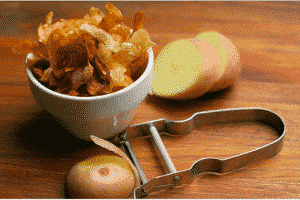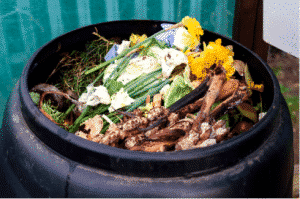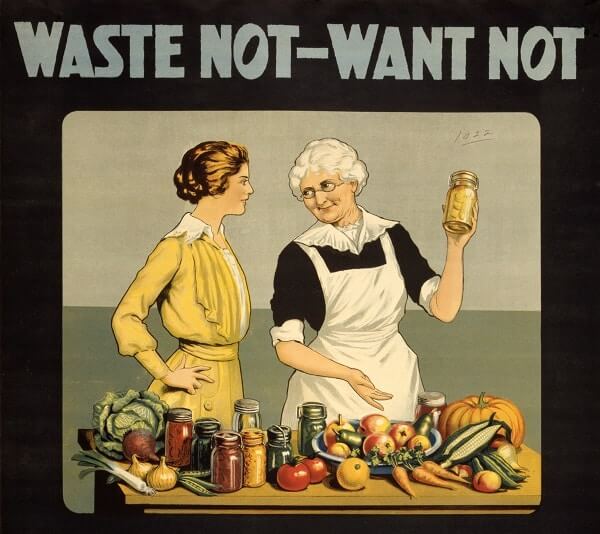Don’t throw away your kitchen scraps; put them to work
We all peel our potatoes, bananas, oranges, carrots, cucumbers and other fruit and vegetables. But did you realise a lot of our food is wasted in the form of scraps or peels? Tossing food scraps in the rubbish bin is a terrible waste of money as well as nutrition. The outer skins of fruit and vegetables are filled with flavour and vitamins, and most often have enough left in them to be turned into another snack or meal.
Here are some tips for breathing new life into your food scraps.
Droopy vegetables
You open up your refrigerator to find a droopy carrot or celery or even sprout onions and potatoes in your pantry. Instead of throwing these away, prepare a vegetable stock or soup. You can also boil potato peels, celery tops, carrot peels, leek ends, etc. for vegetable stock.
Celery tops, onion and garlic skins, carrot peels, and other food scraps are great for flavouring your vegetable broth. Just save the scraps in a freezer-safe container until you have enough to cook them up. You can even add kale and broccoli stems in the soups or broths.
Bread crumbs
Save your stale bread, sides and ends in an airtight container until you have enough to make bread crumbs or croutons. The last pieces of bread also makes a delicious bread pudding.
When potato chips lose their crispiness these can be crunched up and used as a substitute of bread crumbs. You can crumb chicken, fish or even your aloo tikkis with these.
Chips
When you peel potatoes, do not throw away the peels. Instead fry them and add salt and pepper. You can even bake these with a little oil spray and have healthy potato crisps.

Fruit
You can use leftover apple cores and peels to make jelly as apple already contains pectin as a nutrient. You just need the apple peels, lemon zest, water and sugar, and you will be munching on your delicious jelly in no time.
Using a fine grater or zester grate citrus peels to create a fine zest. This zest can then be used to add flavor to all sorts of dishes and is great for use in baking. You can even freeze it to keep for later.
You can juice lemons, limes, oranges or grapefruits and freeze the liquid as ice cubes. These can be added to water or tea to enhance the flavor. You can even add lemon or lime peels to your tea and water to give that extra zest.
Another tip is to use squeezy, soft tomatoes for making delicious Italian pasta sauce with onion, tomato puree, garlic and herbs as well as in different soups.
Leftover wine
You have that half glass of wine left that no one wants to mix with another drink, but do not throw it away. Use it to marinate your meats or add flavor to your stocks and soups.
Shine metals and remove grease
Citrus fruits like lemons, grapefruits and limes are perfect for shining metal. The high citric acid will do wonders for your copper, brass and other metals so use those leftover peels to clean pots and pans. Just sprinkle a bit of baking soda on the object in question and then scrub with your citrus peels.
To clean your coffee pot, add ice, salt and lemon rinds to an empty coffee pot; swirl around for a minute or two, dump and rinse well to have a shining coffee pot.
To remove mineral deposit build up in tea kettles, fill the vessel with water and a handful of lemon peels and bring to the boil. Turn off heat and let sit for an hour, drain and rinse well.
Citrus zest is also great for cleaning up grease. Just sprinkle your stovetop, or very greasy utensils, with baking soda or salt and then rub the lemon peel over it to remove the grease.
 Potpourri
Potpourri
Instead of purchasing expensive potpourri you can simply make your own. Any citrus peels, pomegranate skins, apple peels or other fruit trimmings can be dried completely and then set about to help your home smell wonderful. Keep in an airtight jar if you don’t need it right away.
Compost
If you feel that your food peels and scraps are beyond use then compost is a good option. You can easily set up your own home compost or worm farm. This saves a significant amount of waste from landfill.
All your vegetables and fruits, including the rinds and cores – even if these are mouldy, breads, egg shells, corn cobs, grains and spices can be added to compost. Avoid composing meat and dairy products as these may attract rodents.

Wasted food also means wasted resources. The water, energy, materials and fuel used to harvest, transport, process, package, distribute and market wasted food is also wasted. We have to learn to love food and hate food waste.
READ ALSO: Building a water smart street garden





